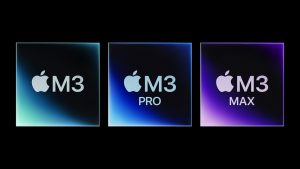
Apple has recently introduced its revolutionary M3, M3 Pro, and M3 Max chips, all designed to provide unprecedented performance enhancements to the Mac. These chips, produced using a cutting-edge 3-nanometre process, are a significant advancement from the former M1 series.
One of the standout features is the GPU, which is emblematic of Apple’s largest-ever progression in graphics technology. This GPU not only introduces “Dynamic Caching” but also ushers in features like hardware-accelerated ray tracing and mesh shading, resulting in graphics rendering speeds that are a staggering 2.5 times faster than the previous M1 chips.
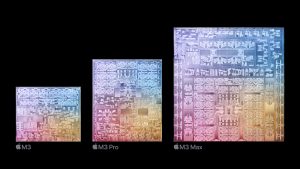
In terms of performance metrics, the CPU cores—both performance and efficiency—have seen considerable improvements, with boosts of 30% and 50%, respectively, when compared to the M1 chips. The Neural Engine, responsible for machine learning and AI operations, is now 60% swifter. A new media engine addition enhances video streaming experiences by extending support to the AV1 decode. Apple’s Senior Vice President of Hardware Technologies, Johny Srouji, articulated the company’s vision, emphasizing how these chips have set a benchmark, redefining Mac’s capabilities in terms of performance and power efficiency.

The GPU’s introduction of Dynamic Caching is industry-first, ensuring memory is used more efficiently, leading to a significant uptick in GPU utility. The inclusion of hardware-accelerated ray tracing promises hyper-realistic imaging, benefiting a broad spectrum of users from game developers to professionals relying on top-tier graphics applications. The CPU’s advancements in the M3 series chips also promise faster task completion and more optimized battery longevity.
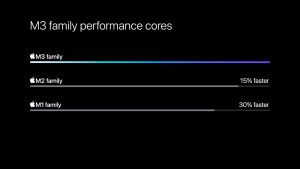
Furthermore, the M3 series champions a unified memory design, a signature of Apple silicon. This feature creates a consolidated data pool, enabling all the chip’s technologies to access the same data, leading to both performance enhancements and a reduction in memory usage for a myriad of tasks. The series also supports up to 128GB of memory, a boon for AI developers working with expansive models.
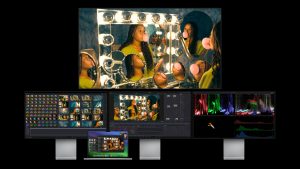
The AI and video functionalities have also seen a marked improvement. The enhanced Neural Engine ensures swifter AI operations while ensuring user data remains on-device, safeguarding privacy. The M3 series also boasts a sophisticated media engine that supports a variety of popular video codecs, with the introduction of AV1 decoding offering efficient video playback.
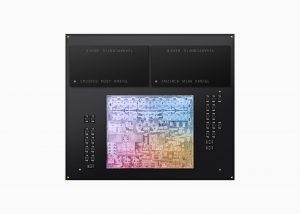
In summary, Apple’s new M3 series chips represent a significant leap forward in computing, providing a blend of performance and efficiency that caters to a diverse range of tasks and user requirements.








